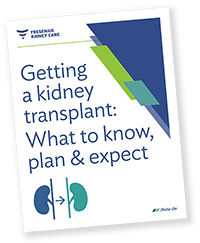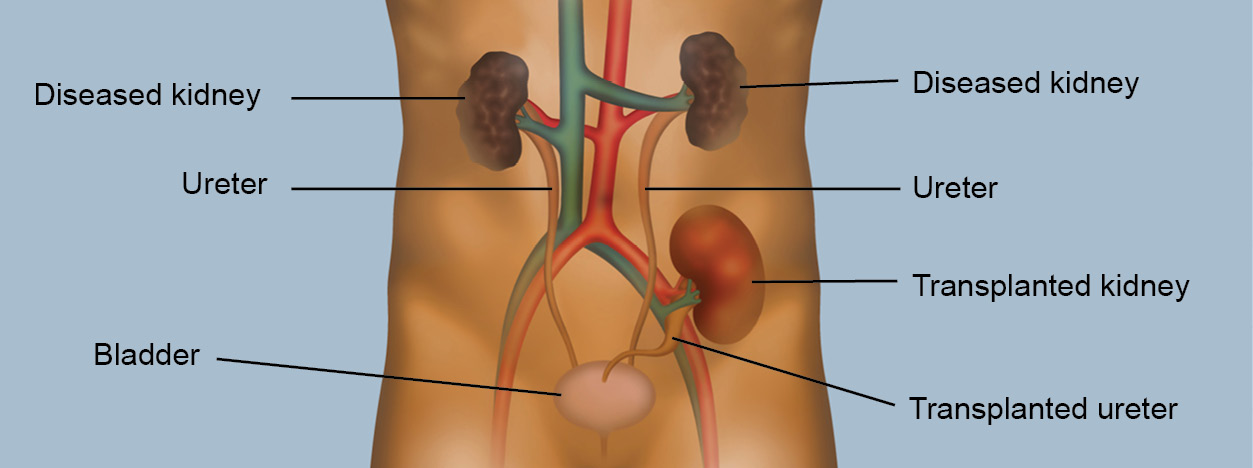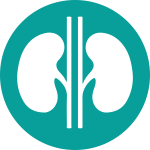
What Is a Kidney Transplant?

What does kidney transplant surgery involve?
You only need 1 working kidney to be healthy, so only 1 kidney is transplanted during surgery. Your 2 original kidneys will usually remain in place and the new donor kidney will be placed in another area of your abdomen. The ureter (urine tube) attached to the donor kidney will then be attached to your bladder. If the kidney transplant surgery is successful, your new kidney will take over the tasks of filtering your blood and making urine, just like your own kidneys did before you had kidney disease.

How long does a kidney transplant last?
The average lifespan of a transplanted kidney is 12-15 years, though some transplants will last longer. Some people may need multiple transplants in their lifetime.
Find out what to consider and how to get started in your search for a kidney match.

Kidney transplant requirements
If you choose to have a kidney transplant surgery, you should know that your best chance for a successful transplant depends on certain factors. Kidney transplant requirements include the following:
Good overall health

A good kidney donor match
If getting a kidney from a living donor is not possible, you can still find a good match, but you will need to be placed on a waiting list to receive a kidney from a deceased donor. In either case, your Fresenius Kidney Care team can help connect you to the right transplant resources and specialists.

The right timing
With kidney transplants, the earlier the better. If possible, it is best to have your kidney transplant surgery before you actually need dialysis. However, like most people electing to have a kidney transplant, you may need to find a good donor match.
Since the average wait time is approximately 3 to 5 years, people waiting for a kidney donor will need to maintain their kidney function through dialysis treatments until a kidney is available. During your waiting period, you have a number of dialysis choices including home hemodialysis, peritoneal dialysis or in-center dialysis treatment options.

There are big benefits to home dialysis—it offers greater flexibility so you can keep the lifestyle you love. Find out if starting or switching to home dialysis is right for you.
What is kidney transplant surgery success rate?
According to the national Organ Procurement and Transplantation Network, the success rate after a kidney transplant with a living-donor kidney was reported as 97% at 1 year and 86% at 5 years. The success rate after transplant with a deceased-donor kidney was 96% at 1 year and 79% at 5 years.

Potential risks and side effects of kidney transplant surgery
As with any surgery, there may be issues and complications. Potential risks after kidney transplant surgery include:
- Temporary lack of kidney function—Your new kidney may not start working immediately and you may need dialysis until it resumes normal kidney function.
- Organ rejection—Your body may reject the donor organ and you may need medication to help your body accept the new kidney.
- Kidney failure—Your new kidney may fail after a number of years and you may need to have a second transplant or go back on dialysis.
- Cancer—Immunosuppressant medication taken after transplant may leave you more vulnerable to disease.
- Diabetes—Medications taken after a transplant can cause diabetes.
- Heart attack or stroke—A transplant puts you at a higher risk than a healthy person who hasn’t had a transplant, especially if you have high blood pressure, high cholesterol or diabetes.
Potential side effects of a kidney transplant may include:
- Narrowing of the artery leading to the kidney—also called renal artery stenosis
- Blood clots
- Infection
- Bleeding
- Weight gain
- High blood pressure
What to expect after kidney transplant surgery
If you’ve met all the requirements for a kidney transplant procedure and you’re scheduled for surgery, your doctor will give you detailed directions on what to expect and how to plan for the procedure.
Before kidney transplant surgery:
- You should look after your health and make it a habit to eat well, exercise, and look after your well-being. Going into surgery as healthy as possible can help with recovery.
- Arrange help for post-surgery recovery. You won’t be able to drive or lift anything heavy, so you’ll need support from a friend, family member, or caregiver.
- Pack for the hospital. Bring what you’ll need to stay comfortable and entertained during downtime.
- Make sure you get any questions answered by your doctor. Keep a list of questions and write them down as you think of them so you don’t forget.
Immediately after kidney transplant surgery:
- You can expect soreness in your abdomen.
- You will need to remain in the hospital for up to a week. Your doctor and care team will closely monitor your status.
- You will need to take immunosuppressants—drugs that will help prevent your body from rejecting your new kidney.
- You will need to take other medication to help reduce your risk for infection and other potential complications.
After you're discharged:
- You’ll need regular checkups for a few weeks after surgery. If you live away from the transplant center, you will need to make arrangements to stay nearby.
- You will be monitored regularly to check on your new kidney.
- You’ll need to take a daily medication to prevent your body from rejecting your new kidney.
e-newsletter
Get the latest news in kidney care and delicious kidney-friendly recipes, plus inspiring stories from people living with kidney disease.


